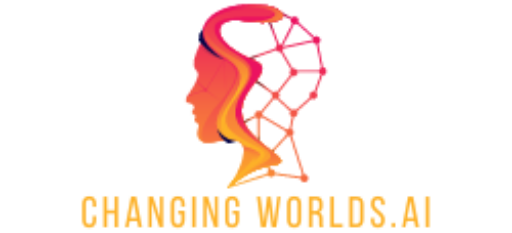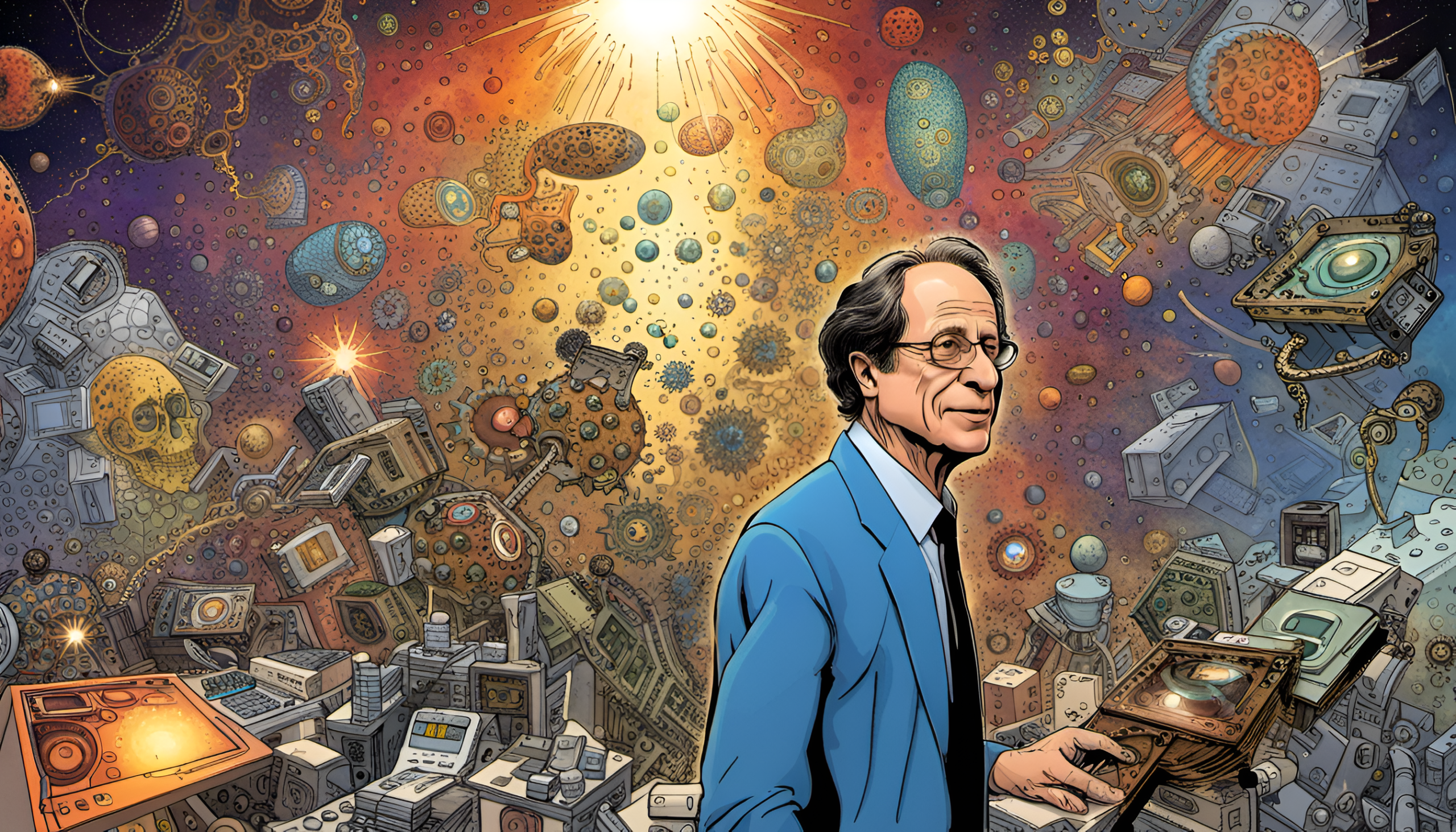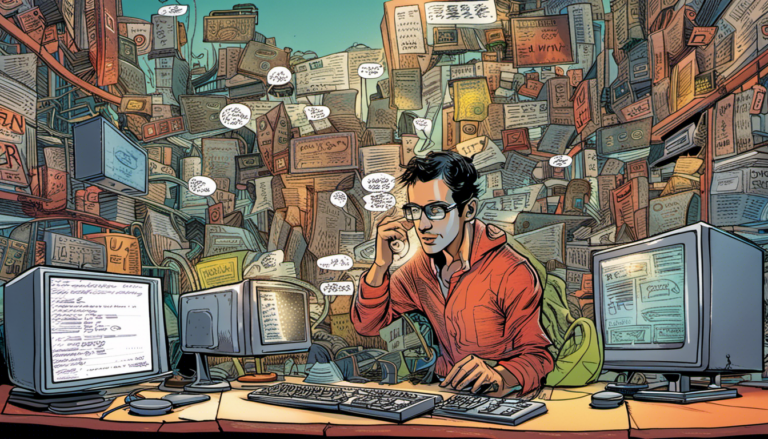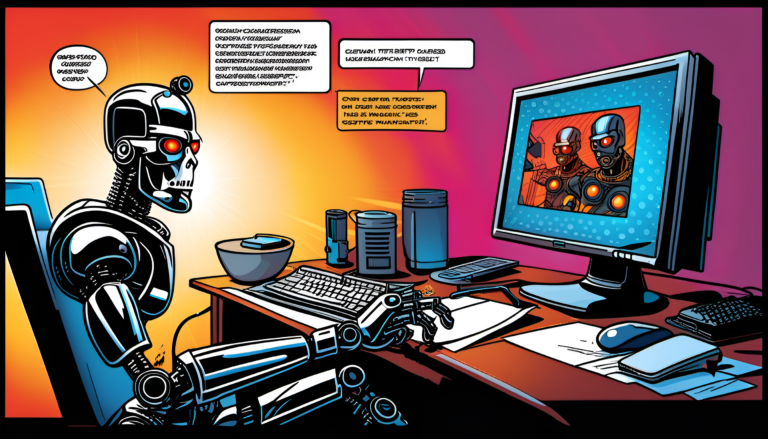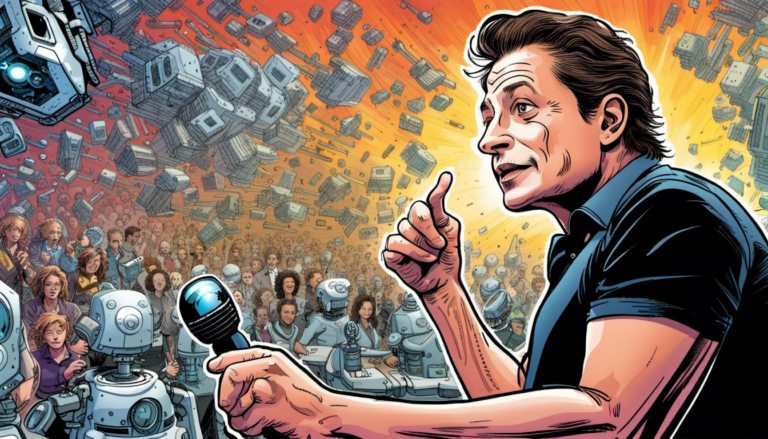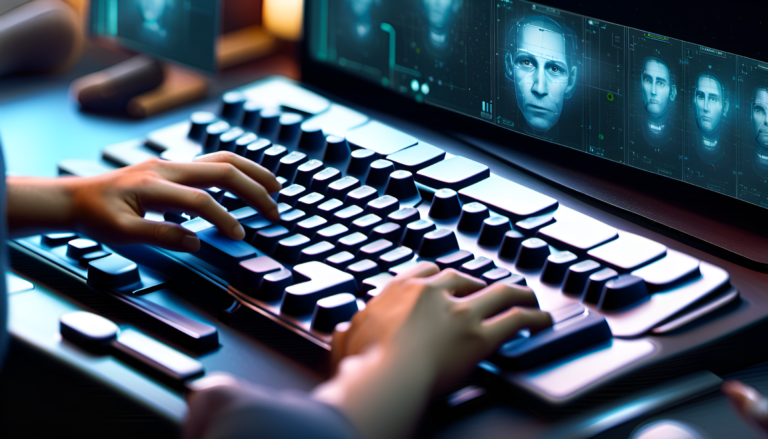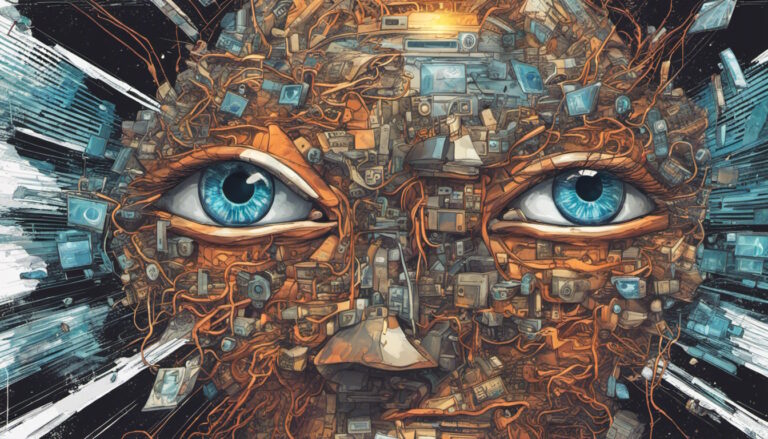Ray Kurzweil and the Singularity: Predictions for the Future of Technology and Humanity
Ray Kurzweil is a well-known inventor, computer scientist, and futurist who has made numerous predictions about the future of technology and humanity. He is widely regarded as one of the most influential thinkers of our time, having made significant contributions to the fields of artificial intelligence, machine learning, and natural language processing.
Perhaps Kurzweil’s most famous prediction is that of the Singularity, a future period during which the pace of technological change will be so rapid that it will fundamentally transform human life. Kurzweil predicts that this transformation will happen in 2045, when we will see a convergence of several key technologies, including artificial intelligence, nanotechnology, and biotechnology.
Kurzweil’s Vision of the Singularity: A Future Transformed by Technology
According to Kurzweil, the Singularity will enable us to enhance our intellects a billion-fold and live as long as we want. He predicts that we will achieve these enhancements through the use of nanobots, tiny robots that can work at the cellular level to repair our bodies and keep us healthy. Kurzweil also believes that we will be able to upload our minds to computers, creating digital versions of ourselves that can live forever.
Kurzweil’s predictions have been met with both excitement and skepticism. Some people believe that his vision of the future is overly optimistic and unrealistic, while others see it as an inevitable outcome of the rapid pace of technological progress that we are currently experiencing. However, Kurzweil argues that his predictions are based on a careful analysis of past trends in technology and a deep understanding of the underlying principles that govern its development.
The Singularity and the Potential Benefits of Rapid Technological Progress
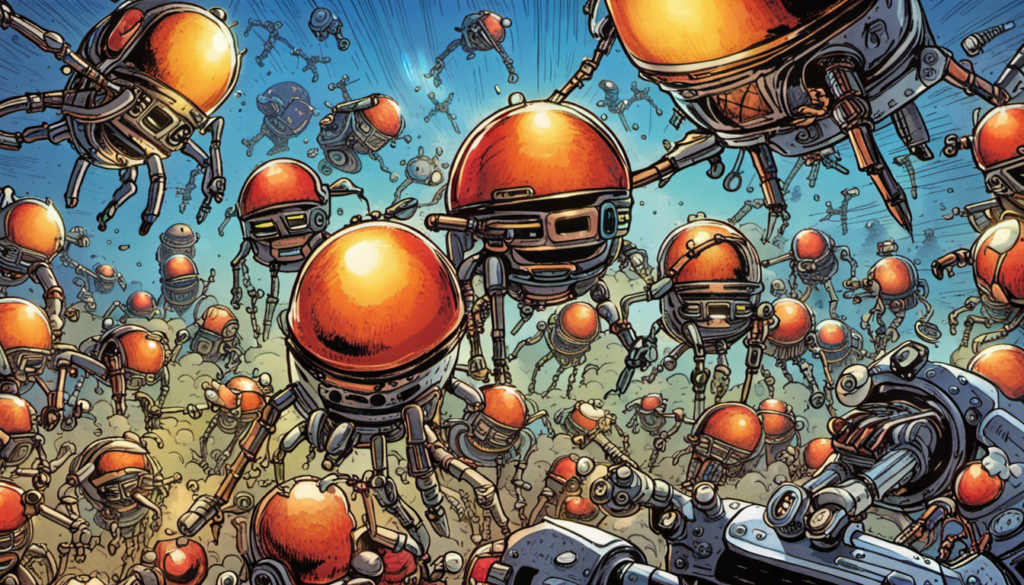
One of the key drivers of the Singularity, according to Kurzweil, is the exponential growth of computing power. This growth, which has been observed for decades, is predicted to continue for the foreseeable future, leading to the development of ever more powerful computers that can perform increasingly complex tasks. This, in turn, will enable us to create artificial intelligence that is capable of surpassing human intelligence, leading to a new era of technological progress and innovation.
Another driver of the Singularity is the development of nanotechnology, which Kurzweil believes will enable us to manipulate matter at the atomic and molecular level. This will allow us to create new materials with unprecedented properties, as well as to repair and rebuild biological systems at the cellular level. Kurzweil predicts that this will lead to the development of new medical treatments and therapies that can cure diseases and extend human lifespan.
Kurzweil’s predictions also include the development of biotechnology, which he believes will enable us to create new forms of life that are more intelligent, resilient, and adaptable than anything that currently exists. This could include the creation of synthetic organisms that can perform specific tasks, as well as the modification of existing organisms to enhance their capabilities. Kurzweil predicts that these advances will have profound implications for fields such as agriculture, energy, and environmental management.
The Pros and Cons of Kurzweil’s Predictions for the Future of Humanity
Despite the excitement surrounding Kurzweil’s predictions, there are also concerns about the potential risks and downsides of the Singularity. Some experts worry that the development of artificial intelligence could lead to the displacement of human workers, as machines become increasingly capable of performing tasks that were once the exclusive domain of humans. There are also concerns about the potential for unintended consequences, such as the development of self-replicating nanobots that could pose a threat to the environment or human health.
| Pros | Cons |
|---|---|
| The Singularity could lead to rapid progress in fields such as medicine, energy, and environmental management. | The development of artificial intelligence could lead to the displacement of human workers and exacerbate income inequality. |
| Nanotechnology could enable us to create new materials and medical treatments that are currently impossible. | There is a risk that self-replicating nanobots could pose a threat to the environment or human health. |
| Biotechnology could enable us to create new forms of life that are more intelligent, resilient, and adaptable than anything that currently exists. | The development of artificial intelligence could lead to unintended consequences, such as the creation of autonomous weapons or the loss of control over intelligent systems. |
| The Singularity could enable us to enhance our intellects and live as long as we want. | There is a risk that the Singularity could lead to a loss of human autonomy and agency. |
| The Singularity could enable us to create digital versions of ourselves that can live forever. | There is a risk that the Singularity could exacerbate existing social and economic inequalities. |
It’s important to note that these pros and cons are not exhaustive, and that there is ongoing debate about the potential benefits and risks of Kurzweil’s predictions. However, this table provides a starting point for thinking about some of the key issues at stake.
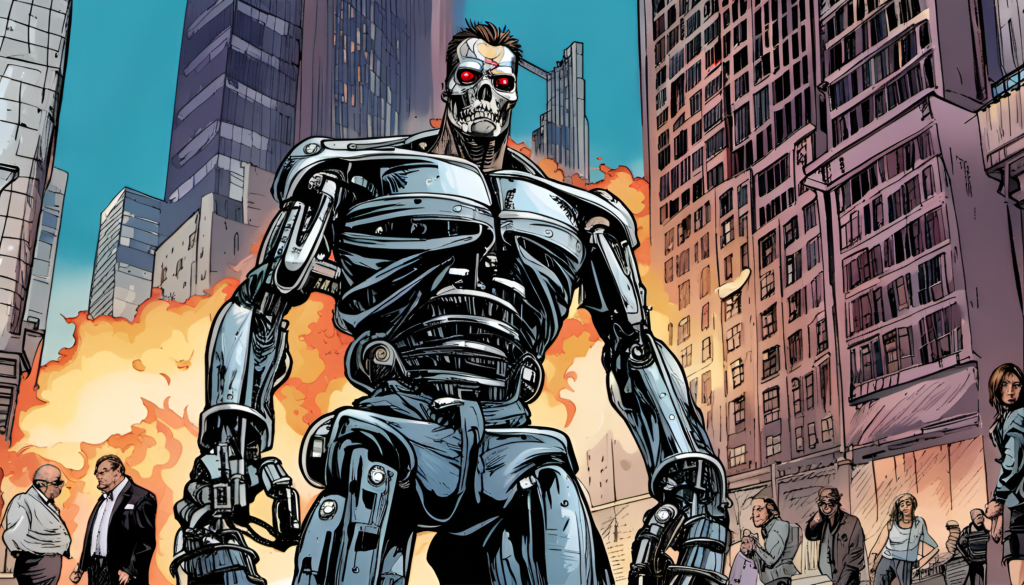
Kurzweil acknowledges these concerns, but argues that they can be addressed through careful planning and regulation. He believes that it is possible to create a future in which technology is used to enhance human welfare and well-being, rather than to replace or harm humans.
In conclusion, Ray Kurzweil is a visionary thinker who has made numerous bold predictions about the future of technology and humanity. While some of his ideas may seem far-fetched, they are based on a careful analysis of past trends in technology and a deep understanding of the underlying principles that govern its development.
Whether or not the Singularity happens in 2045, Kurzweil’s ideas will continue to influence the way that we think about the future for years to come. It is up to us to ensure that we use technology in a responsible and ethical way, so that we can create a future that benefits all of humanity.
Kurzweil’s predictions have sparked important conversations about the future of technology and humanity, and have been the subject of numerous articles, books, and documentaries. He has been featured in publications such as Wired, The New York Times, and Forbes, and has given numerous talks and interviews on his ideas.
Kurzweil’s most famous book, “The Singularity is Near: When Humans Transcend Biology,” has been widely read and discussed by experts in a variety of fields. In the book, Kurzweil argues that the Singularity is an inevitable outcome of the rapid pace of technological progress that we are currently experiencing, and that it will fundamentally transform human life in ways that we can’t yet imagine.
Kurzweil has also written extensively on the topic of artificial intelligence, and has been a vocal advocate for the development of AI that is aligned with human values and goals. He has argued that AI has the potential to solve some of the world’s most pressing problems, such as climate change, poverty, and disease, but that it must be developed in a responsible and ethical way.
Despite the controversy surrounding Kurzweil’s predictions, there is no denying that he has had a significant impact on the way that we think about the future of technology and humanity. His ideas have sparked important conversations about the potential benefits and risks of new technologies, and have inspired many people to think creatively about how we can use technology to improve the world.
Ray Kurzweil’s bio
Ray Kurzweil is an American author, inventor, and futurist born on February 12, 1948, in Queens, New York. He is a pioneer in the field of pattern recognition technology and has made numerous predictions about the future of technology and humanity, including the idea of the Singularity, a hypothetical future point in time when technological progress becomes so rapid that it fundamentally transforms human life. Kurzweil has written several books on the topic, including “The Singularity is Near” and “How to Create a Mind.” He has received numerous awards and honors for his work, including the National Medal of Technology and Innovation, and has been featured in publications such as Wired, The New York Times, and Forbes.
References:
- Kurzweil, R. (2005). The Singularity is Near: When Humans Transcend Biology. Penguin Books.
- Kurzweil, R. (2012). How to Create a Mind: The Secret of Human Thought Revealed. Penguin Books.
- “Ray Kurzweil’s Mind-Boggling Predictions for the Next 25 Years.” Business Insider, 15 Feb. 2015, www.businessinsider.com/ray-kurzweils-mind-boggling-predictions-for-the-next-25-years-2015-2.
- “The Prophet of the Coming Age of Artificial Intelligence.” The New York Times, 17 Nov. 2016, www.nytimes.com/2016/11/17/magazine/the-prophet-of-the-coming-age-of-artificial-intelligence.html.
- “Ray Kurzweil: The Futurist Who Lives in the Present.” Wired, 2
